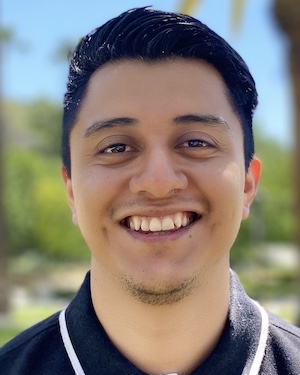Communication is Key!!! Especially in Telehealth!

July 15, 2020
by Daniel
Good communication is an important skill that all occupational therapists need to develop and continue to improve as they continue to practice. As a student completing my final level-2 fieldwork at LAC+USC Adult West Primary Care Clinic, I’ve had the opportunity to practice my communication skills every day. Especially now that most settings are providing telehealth, communication is vital to making things work! The most difficult part about working remotely and communicating is that you may have never actually met the person you are talking to. My time at fieldwork this summer has consisted of communicating with patients over the phone, and communicating with the primary care team via phone, email, video camera, and messages.
Communicating with patients:
One of the hardest things I’ve had to do as an occupational therapy (OT) student is facilitate a one on one, 1-hour appointment over the phone with someone I have never met before. Whether it’s an initial evaluation, progress phone visit, or discharge, asking someone to answer all your questions and trust you over the phone is a lot to ask! Furthermore, if patients have had previous negative experiences in the healthcare system, they may be reluctant to opening up to you. Neither of you are able to see each other’s body language or pick up on cues that people rely on when having a conversation. The way you frame questions, your tone of voice, and your ability to listen will be key to communicate effectively! When I think back to all of the courses I have taken at USC, I have to say that OT 578 Therapeutic Communication: Facilitating Change in Clients (Motivational Interviewing) with Dr. Diaz is one of the most valuable courses I have taken in my entire college career. This class taught me the importance of simply listening to someone and showing them that you care by using reflections, affirmations, summaries, etc. in order to build that trusting relationship with your patient. This may be the first time a healthcare provider is actually taking the time to listen to them and agreeing with a lot of the frustrations they may be expressing. Additionally, the structure in the primary care clinic allows OT to spend up to an hour talking about making lifestyle changes with a patient. This client-centered approach of focusing on the patient’s needs and wants is the unique value of OT. The reality is that motivational interviewing may not work for every single one of your patients, but it is an evidence-based approach that I have personally found valuable during my time in primary care.
Communicating with your team:
Again, communication, communication! At the clinic our interdisciplinary team consists of primary care providers (medical doctors, physician assistants, nurse practitioners), clinical pharmacists, certified medical assistants (CMAs) community health workers (CHWs), care managers, nurses, medical case workers (MCWs), 1 occupational therapist, and 1 occupational therapy student (me). Working within an interdisciplinary team can be challenging at first. My first couple of weeks in fieldwork I spent learning how to use the communication systems used by LAC+USC County, which was frustrating at times with IT or technology issues. In the beginning, every electronic medical record (EMR) message or email I would send to a patient’s primary care provider (PCP) would make me nervous because I would be talking to doctors or specialists that have been practicing for a long time. Furthermore, I am communicating sensitive information that can affect the patient if it’s not communicated properly. Once I became more comfortable and got over my fear of “messing up”, I was able to better understand the value of OT and how to effectively communicate patient concerns with the interdisciplinary team. For example, while working with patients diagnosed with uncontrolled diabetes and/or uncontrolled hypertension, we may communicate patient concerns such as hypoglycemia episodes (really low blood sugar levels), not taking medications, reported pain that is limiting their function, and needed support for food and/or housing insecurity as well as financial support. This communication allows us to catch things that the patient may not have reported during their appointments with other providers and help the team provide the best possible care to the patient.
You will make mistakes and that is totally okay! As a student, this is the time to learn from your mistakes and develop those skills that will help you become an amazing OT in the future! As students we are often too hard on ourselves and are afraid to mess up, but remember to take a step back and remind yourself that you are still learning! As long as you are following safety precautions and working with your team to improve your skills, you will become more comfortable communicating with your patients and your team. As many of you begin to go back to fieldwork in the Fall and then begin level-2 fieldwork next year, you will have the support you need from the fieldwork educators, your clinical instructor (CI), and the rest of the team (wherever your setting is) you are working with! I have been fortunate to have such a supportive team at the Adult West primary care clinic with helping me transition into working remotely and providing feedback to develop the necessary skills to work in this setting. I hope this provides some insight into the importance of communication in the world of telehealth! This is a skill that you will be able to develop during the Master’s program and further enhance if you choose to pursue the OTD as you will have additional mentorship from faculty! I hope that no matter what route you choose, that you feel competent when applying to jobs in the future that require great communication skills and telehealth experience.
⋯
Next by tag Fieldwork ⟩
⋯





